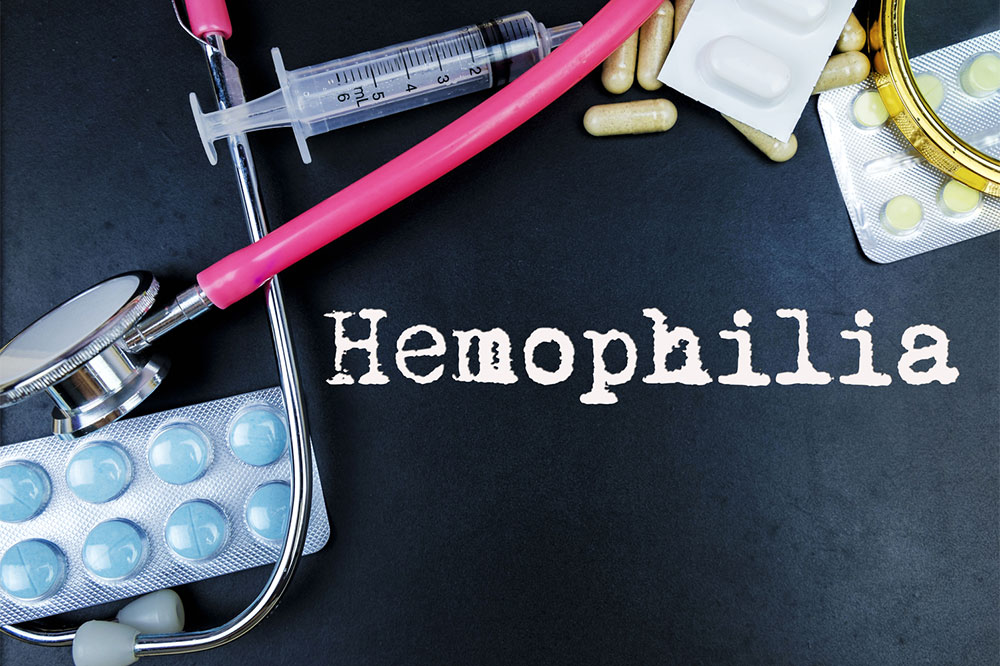5 tips to manage hemophilia
Hemophilia is a blood clotting disorder that makes it difficult for the blood to clot, leading to excessive bleeding. It is a health condition that requires vigilance from the patients and their caregivers to prevent complications. But some steps can be undertaken to lead a quality life and manage the condition in time. We have discussed five lifestyle tips below:
- Keep up with medical care
Avoiding any health complications or infections is an important part of maintaining a healthy lifestyle.

In order to do so, hemophilia patients should get themselves checked annually to assess their condition and get immediate professional care when needed. This also includes preventing blood-borne infections and getting vaccinated for the same. Stay active
Hemophilia patients are advised to steer clear of activities that can put them at risk of getting injured. However, an inactive lifestyle is one of the major causes of weight gain, resulting in strain on the joints and internal bleeding. Indulging in light activities like cardio and stretching helps maintain weight and ensures the patient does not lose their footing after long periods of immobility. Protect children
Children are active and adventurous by nature. Keeping them from falling, tumbling, or wounding themselves on the playground can be a challenging task. It is, however, prudent to take safety measures without hindering the child’s active lifestyle. Babyproofing of the home is one way to ensure the children do not accidentally cut or wound themselves. Another way is to get protective gear like gloves, helmets, knee and elbow pads. Focus on dental care
Patients with blood disorders must avoid bleeding. Taking good care of oral hygiene safeguards one from decay and gum infections, which can inadvertently lead to bleeding. Maintaining a proper oral care routine after a dental procedure helps prevent bleeding. Also, it is equally important to keep up with dental appointments to avoid any major procedures and complications. Avoid unapproved medications
Patients living with hemophilia have a difficult time with blood clots. With the treatment process being slow, individuals should be mindful of the medications they take. Consulting with professionals is ideal. Simple pain medications like aspirin and ibuprofen have the ability to thin the blood, making them unsafe for use. The safest pain killer for hemophilia patients is acetaminophen. Similarly, avoiding blood thinners is crucial.
Hemophilia patients are advised to steer clear of activities that can put them at risk of getting injured. However, an inactive lifestyle is one of the major causes of weight gain, resulting in strain on the joints and internal bleeding. Indulging in light activities like cardio and stretching helps maintain weight and ensures the patient does not lose their footing after long periods of immobility.
Children are active and adventurous by nature. Keeping them from falling, tumbling, or wounding themselves on the playground can be a challenging task. It is, however, prudent to take safety measures without hindering the child’s active lifestyle. Babyproofing of the home is one way to ensure the children do not accidentally cut or wound themselves. Another way is to get protective gear like gloves, helmets, knee and elbow pads.
Patients with blood disorders must avoid bleeding. Taking good care of oral hygiene safeguards one from decay and gum infections, which can inadvertently lead to bleeding. Maintaining a proper oral care routine after a dental procedure helps prevent bleeding. Also, it is equally important to keep up with dental appointments to avoid any major procedures and complications.
Patients living with hemophilia have a difficult time with blood clots. With the treatment process being slow, individuals should be mindful of the medications they take. Consulting with professionals is ideal. Simple pain medications like aspirin and ibuprofen have the ability to thin the blood, making them unsafe for use. The safest pain killer for hemophilia patients is acetaminophen. Similarly, avoiding blood thinners is crucial.
Disclaimer:
The content provided on our blog site traverses numerous categories, offering readers valuable and practical information. Readers can use the editorial team’s research and data to gain more insights into their topics of interest. However, they are requested not to treat the articles as conclusive. The website team cannot be held responsible for differences in data or inaccuracies found across other platforms. Please also note that the site might also miss out on various schemes and offers available that the readers may find more beneficial than the ones we cover.